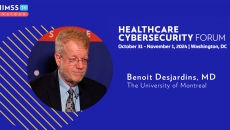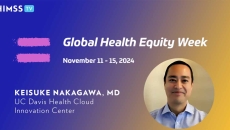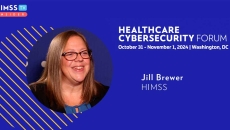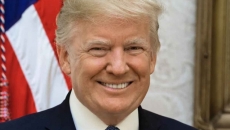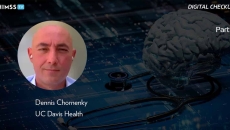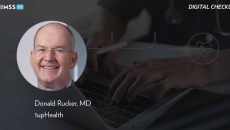Organizational Governance
Cybersecurity experts are implementing measures to prevent localized attacks from spreading into hospital networks, where they can affect millions of medical records, says Dr. Benoit Desjardins, professor at the University of Montreal.
A new cybersecurity mandate in New York requires hospitals to implement incident reporting within 72 hours and have a chief information security officer, says George Pappas, healthcare cybersecurity expert and CEO of Intraprise Health.
Dr. Keisuke Nakagawa, director of innovation at UC Davis Health, highlights how artificial intelligence can help unearth social determinants of health and how AI can advance health equity.
Third-party risk management was the No. 1 weak link reported in organizations' cyberdefense strategies, says Jill Brewer, market insights lead at HIMSS. The No. 1 technology to use is AI-powered threat-detection and analytics.
Marjorie Rosen, HIMSS Chapter Advocacy vice chair, discusses unifying advocacy work between HIMSS chapters for health equity, providing mentorship for local community leaders and working directly with state legislatures to ensure neutrality.
DarioHealth, Clover Health and eHealth also released third-quarter financial results.
We're facing an average of two data breaches a day across the country, says Greg Garcia, executive director of the Health Sector Coordinating Council Cybersecurity Working Group. Still, we have the tools to respond to and mitigate the damage.
To ensure proper AI use in healthcare, chief AI officers must be proactive, reach out to colleagues, develop valuable relationships and set up informational sessions, says Dennis Chornenky, UC Davis Health chief AI advisor.
Donald Rucker, chief strategy officer at 1upHealth, discusses the details associated with CMS' Medicare Star Ratings, balancing the complexity and interest of patients and taxpayers, and what plans need to do to up their rating.
